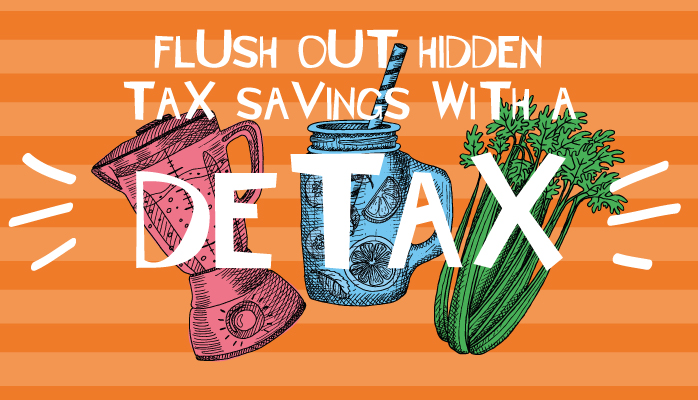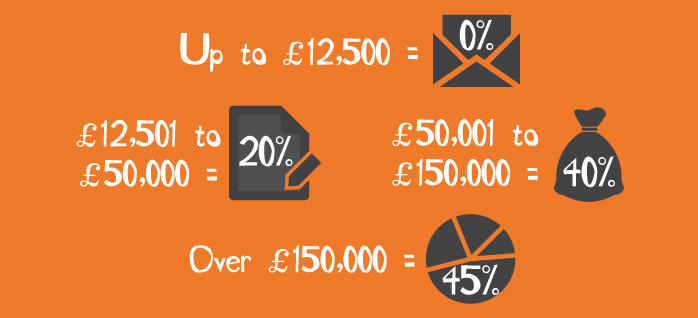
5 tips for tax-efficient profit extraction – updated April 2020
When you’re running a profitable business, how do you get those profits out of the business and into your pocket, so you can spend the money on the things that you want to spend it on, without incurring any more tax than you should? If you’re running your own company and you’re in charge, you can decide how much you pay yourself, when you pay yourself and the form in which you pay yourself – that’s entirely your right as the business owner.
It’s then about understanding the rules around the different ways you can extract the profits, and what the tax outcomes would be from that. There’s no rule that says you must take profits out in a way that gives the most tax to the government, in fact it’s long been understood (for over 100 years) that you’re perfectly entitled to organise your affairs in a way that produces the minimum amount of tax – as long as it’s within the rules.
Here are 5 tips for tax-efficient profit extraction:
- Small Salary
There’ll always be variations, but as a general rule, a business owner with their own company will take the money out by way of a small salary and take the balance by way of dividends. So if you pay yourself £100,000 per year, it could be roughly split into an £8,000 salary and a £92,000 dividend. That will produce noticeably less tax than taking the whole £100,000 out as a salary. If you took this amount as a salary, you’d have to pay 40% income tax and 12% employees National Insurance contributions (NIC), plus the business would have to pay 13.8% employers NIC. The amount of income tax you pay will of course depend on which income tax bracket you are in, outlined below:
A small salary is an effective way to extract some of the profits from your business, and it is essential to be clear with your documentation about exactly what you’re getting.
- Dividends
As mentioned, dividends are another common and effective way to extract money from your business in a tax-efficient manner. You can only pay dividends on profits generated, which incur a 19% corporation tax charge (2019/20). For the current tax year (2020/21), you can take up to £2,000 worth of dividends tax-free. It’s also important to note that you may pay tax at more than one rate, depending on other income subject to tax.
For dividend payments over £2,000
-
Within your personal allowance (up to £12,500 of annual income),
the dividend tax is 0% -
Basic rate of income tax (£12,501 to £50,000 of annual income),
the dividend tax is 7.5% -
Higher rate of income tax (£50,001 to £150,000 of annual income),
the dividend tax is 32.5% -
Additional rate of income tax (above £150,001 of annual income),
the dividend tax is 38.1%
Again, it’s crucial that you get the paperwork right so that it can stand up to challenge.
- Pension Schemes
If you earn up to £200,000 per year, your company can put up to £40,000 per year in a pension plan, completely tax-free, up to a lifetime value of £1.055 million. That’s a significant amount of money in a tax-exempt fund, which has the added benefit of being outside your business. If instead you leave all of that money in your business and something goes wrong one day, the creditors and liquidators could come in and take it all away. If you build it up sensibly in the pension fund, there’s a much better chance of it being protected. Many of my clients like paying into their pension scheme as it encourages them to save money that they can’t take out until they’re at least 55. The earlier you can start, the better, so that the money can compound and you can work towards maximising the pot at £1.073 million.
At age 55 you can take 25% as a tax-free lump sum, or keep paying in until you’re 75
- Company Cars
Just a few years ago, the ‘golden rule’ was that if you wanted a decent car, you were much better off buying it yourself rather than through your business. This ‘rule’ still generally applies unless you are looking at one of these very fuel-efficient electric or hybrid cars, which have very low CO2 emissions and therefore very low tax rates. I’ve seen examples in recent months where clients would be significantly better off (we’re talking thousands of pounds per year) if they purchased one of these fuel efficient / low emission cars through the business. This won’t be appropriate for everyone and will very much depend on your individual circumstances, but it’s certainly worth exploring both options (buying personally or through the business), particularly if you are thinking of buying a hybrid or electric car.
- Restructuring Shareholdings
Restructuring shareholdings can be a great way to bring somebody else into a business whilst also saving costs. I’m doing work with a company where there are two directors with a 50/50 share and they want to recruit somebody into a senior position. The person they want to recruit currently works in another business. By restructuring their shareholdings and offering this third person shares in their business, they can save on the NIC contributions (by not having to pay a salary) and offer a much more compelling financial package. Ultimately this new person will end up with more money in their pocket than they are getting in their current salaried job, and the business can have this additional key person at a significantly lower cost. Whilst this isn’t appropriate for everyone and you need to think very carefully about who you offer shareholdings to, it can work very well under the right circumstances.
A phrase I often use is “the tax flows from the facts”, so it’s very important that the paperwork is consistent with the facts and that your actions are aligned with the paperwork. That way there’s no confusion or ambiguity as to what’s really going on.
A great accounting firm will take time to understand you, your business and where you’re trying to get to. That way they can help you to make the best decisions on how you organise yourself so that you don’t pay any more tax than you have to.
CASE STUDIES
Due to the nature and complexities of the tax code it is difficult to put what we do into words, but the numbers usually help! Read some of our clients’ experiences here to understand why our tax retainer might be the right solution for you
Guide to selling your business
Your simple guide to helping you maximise the value in your business.
Sign up to receive alerts
Call us on 01628 770 770 for a no-obligation chat
You may also be interested in...
New Companies House filing requirements under the Economic Crime and Corporate Transparency Act (ECCTA) 2023.
What’s happening? The ECCTA received Royal Assent in October 2023 and gives more powers to Companies House to play a more significant role in tackling economic crime and supporting economic growth. Introduction of new laws under the ECCTA will be…
Companies House Filing Fee Increases from May 2024
From Wednesday 1st May 2024 the revised Companies House filing fees will come into effect. The change comes following The Economic Crime and Corporate Transparency Act 2023 which allows Companies House increased powers to ensure accuracy, verify the…
April 2024 – Tax News
Happy new tax year In this April issue we highlight some of the key tax changes that take effect from the start of the new tax year. Unfortunately, most of the income tax and national insurance thresholds continue to be frozen, resulting in an…





